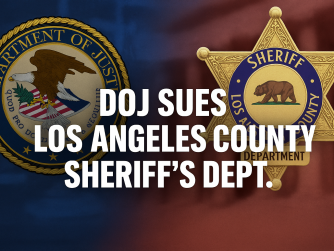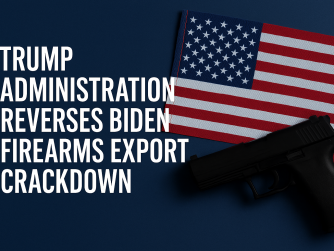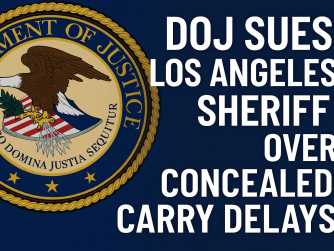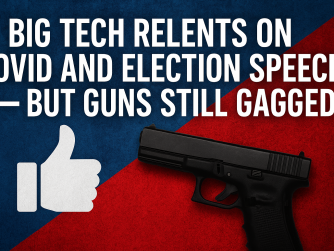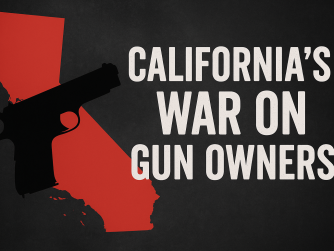While 29 states have embraced constitutional carry, California is moving in the opposite direction—making it harder for law-abiding citizens to exercise their Second Amendment rights. The state’s concealed carry permit (CCW) process is already more burdensome than most, but now, local agencies—especially in places like Los Angeles—are accused of outright violating both California law and the Constitution.
The Los Angeles Police Department (LAPD) is reportedly telling CCW applicants to expect wait times of 18 to 22 months, despite a state law requiring permits to be issued or denied within 120 days. Worse, LAPD is accused of skirting the law by placing applicants on a waitlist and not officially accepting their applications until it chooses to, delaying the clock from even starting. Since CCW permits are valid for just two years, many applicants spend nearly the entire term waiting for approval. Renewals are just as problematic, often taking longer than the validity of the original permit—effectively stripping citizens of their carry rights through bureaucratic delay.
These delays aren’t just a policy failure—they’re now being cited in court. One recent case involved a CCW applicant with legally registered firearms who was arrested for unlawful carry. The defense pointed to the LAPD’s backlog and the applicant’s position on the waitlist as justification for judicial diversion. Although the judge denied the request, he did so without prejudice, leaving the door open for further legal argument over the LAPD’s delay.
There’s little hope the situation will improve soon.
According to a Real Clear Investigations report, the LAPD is suffering from a severe staffing crisis made worse by the city’s “defund the police” agenda. In 2020–2021, 631 officers left the force. More cuts are on the way. The City Council recently slashed the LAPD budget again, which will leave Los Angeles with just 8,400 officers—its smallest force since 1995.
The result? Citizens are paying tens of millions in overtime for a diminished and overworked police force. LAPD spent a record $265.5 million on overtime last year, and 2025 is expected to exceed that. That bill will climb even higher as the city prepares to host global events like the 2026 World Cup and 2028 Olympics.
Meanwhile, response times have tripled in some neighborhoods. Proactive policing has plummeted. And the city’s alternative—sending unarmed mental health teams to deal with drug use, homelessness, and crises—has backfired. Even these teams frequently call for police backup because of threats or weapons.
For the wealthy, there’s another solution: private protection. A new service called “Patrol” allows residents of upscale neighborhoods like Brentwood and Malibu to hire off-duty LAPD officers to guard their homes. Ads encourage people to “sleep knowing someone’s looking out for you.” But regular Angelenos are rightly asking: aren’t our taxes supposed to cover that?
This two-tiered system has created a perverse reality: while the state delays and obstructs the ability of ordinary people to legally carry, it allows police officers to moonlight as private guards for those who can afford it.
The cycle is dangerous. Citizens, no longer confident in police protection, turn to the permitting process for the right to defend themselves. But that system is broken—intentionally, it seems—and the rules are enforced unequally. The state demands citizens follow the law while ignoring its own legal obligations.
Attorneys with the California Rifle and Pistol Association (CRPA) have warned the LAPD that its delays violate both state law and the Second Amendment. If the city doesn’t resolve its backlog, a federal civil rights lawsuit is coming—one that could cost the city millions in damages and legal fees.
The Justice Department may also get involved. A pattern of depriving Californians of their right to bear arms could trigger a federal investigation into whether the city is systematically violating civil liberties.
As the saying goes, freedom isn’t free. But in California, neither is oppression. And it comes with a steep price.


